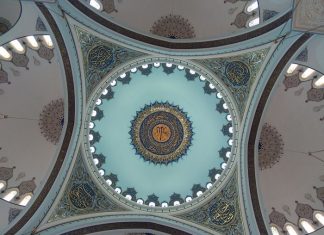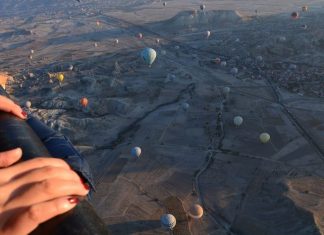Some of them have been meeting spots for musicians, some forwriters. Some coffee houses were inevitable for ramadan festivities, and somewere the gathering venue for firemen. For instance, blackbeetle races were organizedfor gambling purposes at arif`s coffee and game house on divanyolu…
Coffee is an excuse
Coffee is an excuse, because every meeting around Turkishcoffee has produced many friendships and conversations for centuries. Eventoday, Turkish coffee is the most pleasant bridge for relationships, but thefoundations of this bridge date back to many years ago.
Coffee, known in the Middle East and around theMediterranean since the 12th century, becomes more common only in the 14thcentury. The etymological root of the word coffee is the city “Kaffa the mostimportant coffee production center in South Ethiopia. The word became coffea inLatin and coffee in English. The first person to discover coffee was thefounder of the Sazeli sect, Ebu`l Hasan Sazeli (died 1260). In Katip Celebi`saccount, “On his way to pilgrimage in 1258.
Sheikh Ahmet
Sheikh Sazeli boils the coffee beans given to him in aconversation with his disciple Sheikh Ahmet, and drinks the liquid“. Coffeesellers in Istanbul have since then accepted this person as their“master”, and they continued the tradition of hanging calligraphic signsthat say “His Highness Sheikh Sazeli” on their walls.
Coffee is brought to Yemen by the dervishes of the Sazelisect, and meets great interest here. It is used to alert the mind in zikircongregations because of its stimulant effect. Spreading out from Yemen, coffeeis brought to Cairo and Mecca at first, and becomes known to the Ottomansduring the Egypt War in Yavuz Sultan Selim`s time. Coffee was brought toIstanbul by Muslim merchants, was processed into beans at the warehouses inEminonu, roasted and grinded in mortars, and then was sold to retailers. Coffeeis not very popular in Istanbul at first, but after some time, everybody beginsasking for it. In a short while, “coffee houses” come into existence.
The taste of the coffee houses which affected greatly thecultural life of Istanbul remained on the old gravures…
Karagoz and Hacivat
Mainly during the Ramadan, people of Istanbul used to streamto the old coffee houses. Meddahs were telling stories and people used to beentertained with Karagoz and Hacivat…
Coffee houses that have significant influence on the cultural life in Istanbul, are first opened in mid-16th century, towards the end of Kanuni Sultan Suleyman`s reign. Seeing that everybody spends time in these coffee houses and misses prayer times, Ebussud Efendi, the most prominent chief religious official in the Ottoman Empire, says that “Whatever reaches the temperature of coal, whatever can be burnt like coal, is forbidden by religion!” and issues a decree to close down all coffee houses. To execute this decree, Kanuni Sultan Suleyman orders that the ships carrying coffee to Istanbul are sunk immediately, and that coffee houses are torn down…
Although the exact date is unknown, the first coffee house was first opened in Tahtakale in the 16th century. A person named Hakem from Aleppo, and one named Sems from Damascus come to Istanbul to open a coffee house. Games such as backgammon, chess, and checkers are played at the coffee house, and in a while it becomes a venue for meddahs (special storytellers) to tell their stories. Because the coffee house is in Tahtakale, the last stop for Middle and Far Eastern commerce, Arabs, Persians, Indians, North Africans, Spanish, and Jews are among the visitors. When unemployed people start going to these coffee houses, there is unrest and they are shut down. In time, coffee ban is lifted; coffee becomes abundant, and is sold in cups on the street. Coffee houses on the other hand become the most important cultural venues where the people of Istanbul gather together for entertainment and conversation.
This article is published for enmarbg. For more interesting information about Bulgaria tours, please visit Bulgaria tours.
Read More about Grand Balkan Tour








